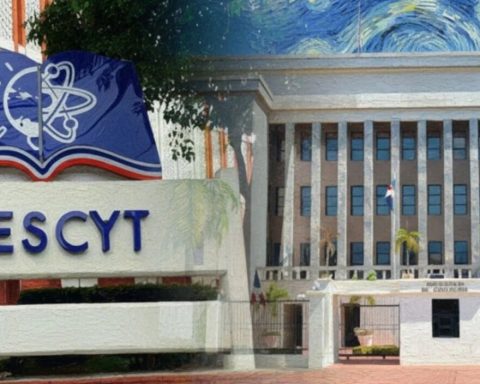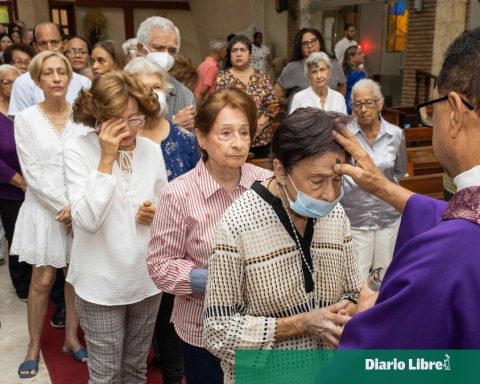The National Commission for the Defense of Competition (ProCompetition) has detected ambiguities regarding the transportation and accommodation issues in the draft regulation for the application of the Tax on the Transfer of Industrialized Goods and Services (ITBIS) to providers of digital services abroad prepared by the General Directorate of Internal Taxes (DGII).
Immediately, the state institution has recommended solving them to prevent this instrument from becoming a regulatory barrier that discourages the entry of new players into the markets and affects the dynamics of free and fair competition, as well as the rights of users, and lends itself to discretionary application by the various agencies of the tax administration, which would generate uncertainty in those who would be subject to compliance with said regulation.
It has warned that, if the inaccuracies remain, there would be an alteration to the principle of fiscal neutrality because local providers of digital services would be granted differentiated and advantageous treatment with respect to digital services provided from other countries. He understands that the treatment that will be given to suppliers domiciled or resident in the country who venture into the provision of the indicated services must be specified, in order to avoid possible adverse repercussions.
He anticipates that, although the wording of the draft does not establish that the cost of the tax will have to be assumed by the local consumer, he will pay it in the digital service he consumes.
“From the point of view of free competition, this differentiated and advantageous treatment towards local digital service providers would convert said regulatory proposal into a State legal act contrary to free competition, likely to place some competitors in a disadvantageous situation with respect to of others in the digital services market”, he emphasizes.
The observations are contained in a communication sent on March 16, 2022 to the director general of the DGII, Luis Valdez, by the president of the Board of Directors, María Elena Vásquez Taveras, after being unanimously approved by the Board of Directors of the institution, made up of Gianna Franjul, Víctor Mateo, Iván Gatón and Juan Reyes.
Article 20 of the General Law for the Defense of Competition 42 of 2008 establishes that administrative acts aimed at issuing regulations or resolving sanctioning administrative processes raised before other market regulatory entities other than the Commission, provided that they are related to the purpose of this law, they should be sent to the Commission for examination together with supporting documentation.
The competition advocacy powers conferred by law to ProCompetencia are intended to prevent provisions that have a negative impact on competition and the structure of the market from being incorporated into the national regulatory framework.
The state body has suggested to the DGII to appeal to the Dominican Institute of Telecommunications (Indotel), in its capacity as regulatory entity, to evaluate the equity principle when taxing digital services with that or any other tax.
It notes that in article 4 of the draft, companies and individuals not resident or domiciled in the Dominican Republic that provide some of the digital services, and that are used and consumers in the national territory, are identified as obligated subjects, but not refers to the applicability or not of the ITBIS to the similar ones provided through the internet by local providers to be consumed within the national territory, as is the case with Corotos.com, LaPulgaRD.com, OrdensYa.com.do.
Regarding transportation issues land and accommodation mediated by digital services, the body analyzed the following aspects: scope of application, implementation mechanism for digital services, application to digitally mediated accommodation services, application to digitally mediated transport services and determination of the tax base digital services tax.
As for the lodging theme, The document issued clarifies that the regulation in question could only contemplate the applicability of the ITBIS to the intermediation services offered by the digital platform Airbnb and related, not to the rental of the home as such, “as long as the property that is a place intended exclusively to be inhabited by people on a regular basis or on a permanent basis. It argues that the tax regime currently in force in the Dominican Republic excludes housing rental services from the application of the ITBIS, as we will see below.
And about the application of the tax to ground transportation services mediated by the digital, ProComperencia warns that it would be impossible to apply it to platforms such as Uber, Indriver, DiDi and the like. Explains that land transportation services are exempt from ITBIS by express provision of Decree No. 293-11, which establishes the Regulation for the Application of Title III, of the Tax Code of the Dominican Republic, of the Tax on the Transfer of Industrialized Goods and Services .
“In this case, the draft Regulation could only contemplate the applicability of the ITBIS to the intermediation services offered by the digital platforms, but not the transport service itself,” he specifies.
He cites article 344 of the Tax Code, which establishes: “… The provision of the services detailed below is exempt from the payment of ITEBIS: 1. Financial services, including insurance; 2. Pension and retirement pension plan services; 3. Ground transportation services for people and cargo; 4. Electricity, water and garbage collection services; 5., housing rental services; 6. Health services; 7. Educational and cultural services; 8. Funeral services; 9.- beauty salon and barbershop services.
He suggested clarifying the treatment that will be given to providers of digital services domiciled or resident in the Dominican Republic who venture into the provision of the services indicated in article 5 paragraph II of the draft regulation, to avoid possible adverse repercussions on the principle of fiscal neutrality. , equality and justice proclaimed in recital 15 of the draft regulation.
It highlights that it does not refer to the applicability or not of the ITBIS to digital services that are provided through the Internet by local providers, to be consumed within the national territory, as are the cases of platforms such as Corotos.com, LaPulgaRD.com, OrdensYa.com.doamong others, that serve as a digital market for the C2C or B2C level in the Dominican Republic.
Regarding land transportation services, it warns that they are exempt from ITBIS by express provision of decree 293-11, which establishes the Regulation for the Application of Title III, of the Tax Code of the Dominican Republic, of the Tax on the Transfer of Industrialized Goods and Services .
“It would not be possible to apply the ITBIS to transport services offered through digital platforms such as Uber, Indriver, DiDi, etc. In this case, the draft Regulation could only contemplate the applicability of the ITBIS to the intermediation services offered by the digital platforms, but not the transport service itself.
According to the conclusions of the Board of Directors of ProCompetencia, it would not be possible to apply the ITBIS to transportation services offered through digital platforms such as Uber, Indriver, DiDi and others, because ground transportation services are exempt from ITBIS by express provision. of decree 293-11, which establishes the regulations for the application of title III, of the Tax Code of the Dominican Republic, of the Tax on the Transfer of Industrialized Goods and Services.
“In this case, the draft Regulation could only contemplate the applicability of the ITBIS to the intermediation services offered by the digital platforms, but not the transport service itself,” he specifies.

















